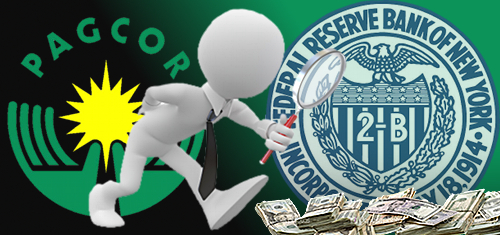 A preliminary investigation by Philippine gaming regulators of millions of dollars of heisted Bangladeshi government funds has found no fault with local casino operators.
A preliminary investigation by Philippine gaming regulators of millions of dollars of heisted Bangladeshi government funds has found no fault with local casino operators.
The Philippine Daily Inquirer quoted an anonymous “ranking official” at the Philippine Amusement Gaming Corp (PAGCOR) saying only $46m of the stolen $81m that entered the country’s financial system last month ended up under the control of the local gaming industry.
The money is part of an estimated $1b belonging to the Bangladeshi central bank that unknown cyber-thieves attempted to purloin from the Federal Reserve Bank of New York in early February. Employees at the Fed eventually caught on to the scam but not before $81m in transfers to Philippine banks had been approved.
The $46m that ended up in Philippine casino hands was reportedly split into two tranches: a $26m transfer ended up at Bloomberry Resorts‘ Solaire Resort and Casino in Manila while the other $20m was sent to the Eastern Hawaii Casino and Resort in the Cagayan Economic Zone Authority.
Earlier reports had included Melco Crown Entertainment’s City of Dreams Manila and Leisure & Resort World Corp’s Midas Hotel and Casino in Pasay City on the list of gaming venues to have received stolen funds but the Inquirer made no mention of these two properties.
The PAGCOR official claimed that the $46m ended up in accounts of gaming clients in early February, and remained there for 20 days until the Philippines Court of Appeals ordered the accounts frozen on March 1 following a request by the Anti-Money Laundering Council (AMLC). The Inquirer couldn’t say how much money might have been left in the accounts when they were frozen.
During those 20 days, the PAGCOR source claimed the funds were “being used for betting” and that there appeared to be “nothing out of the ordinary” in their use. The clients who accessed the funds in these accounts had reportedly already been playing on a casino credit line before the funds were deposited, a not uncommon occurrence for VIP gamblers. The PAGCOR official emphasized that casino AML protocols prevented gaming chips from being cashed out by anyone other than the person who brought them in.
Media reports have identified six Philippine nationals whose names were listed on the bank accounts into which the $81m was originally deposited. The funds were reportedly then transferred to Weikang Xu, a Chinese national who allegedly has ties to casino junket operations.
